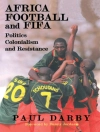Since the end of the Cold War, a virtual army of nongovernmental organizations (NGOs) from the United States, Britain, Germany, and elsewhere in Europe have flocked to Central and Eastern Europe and Eurasia. These NGOs are working on such diverse tasks as helping to establish competitive political parties, elections, and independent media, as well as trying to reduce ethnic conflict.
This important book is among the few efforts to assess the impact of these international efforts to build democratic institutions. The case studies presented here provide a portrait of the mechanisms by which ideas commonly associated with democratic states have evolved in formerly communist states, revealing conditions that help as well as hurt the process.
Tabela de Conteúdo
1. Introduction: Transnational Networks and NGOs in Post-Communist Societies, by Sarah E. Mendelson and John K. Glenn
2. International Actors and Women’s NGOs in Poland and Hungary: The Difference They Have Made, by Patrice C. Mc Mahon
3. Evaluating Western Assistance to Russian Women’s Organizations, by James Richter
4. International Assistance and the Development of Independent Mass Media in the Czech and Slovak Republics, by Karen Ballentine
5. Western and Russian Environmental NGOs: A Greener Russia?, by Leslie Powell
6. Environmental NGOs in Kazakhstan: Democratic Goals and Non-Democratic Outcomes, by Erika Weinthal and Pauline Jones Luong
7. International Democracy Assistance In Uzbekistan and Kyrgyzstan: Building Civil Society From the Outside?, by Fiona B. Adamson
8. International NGOs in Bosnia-Herzegovina: Attempting to Build Civil Society, by V.P. Gagnon, Jr.
9. Conclusion: The Power and Limits of Transnational Democracy Networks in Post-Communist Societies, by Sarah E. Mendelson
Sobre o autor
Sarah E. Mendelson is a senior fellow with the Center for Strategic & International Studies Russia and Eurasia Program. She lives in Washington, DC. John K. Glenn is the executive director of the Council for European Studies at Columbia University.












